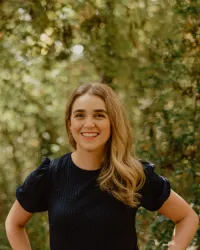Our up to date ideas on getting your PhD with the least amount of stress possible

How Much Time Do I Need to Apply?
How much time do I need for PhD applications?
You’re probably wondering how much time this PhD application is going to take you, so you can block off the time on your calendar and get it done.
I hate to break it to ya, but the PhD application can be a bit iterative and not always a linear thing. I’ll outline the big things you need to do to be successful, and share a time range most people use. Remember, there is no single right amount of time, so do what works for you. It’s better to have a done application than a perfect application.
It should take you a few months to find the right programs for you
Finding your ideal PhD program is a bit like dating. You’ll need to get clear on what you want and then determine if programs on your list are a good fit. This requires some deep googling (I know you’re an expert). The key is to keep a tracker or spreadsheet of the schools and professors you’re researching. This saves you time when say in 4 months you want to revisit a potential school; you’ve already done the legwork.
Depending on your criteria, you could spend a few months in this fact finding phase. Because you’re probably working full time or juggling school, this would probably be 2 hours per week for 3 months so ~24 hours total.
Connecting with faculty and PhDs will take a few months
Now that you’ve found some good programs and the work the faculty are doing looks interesting, it’s time to reach out and have a real human to human conversation. Write a short and clear email that lets them know you’re interested in doing your PhD and learning more about the program and ask for a quick phone or zoom chat.
Doing your research on who you’re reaching out to will take about 2 hours per school. Then drafting a great email should take 20 minutes. So let’s assume 2.5 hours per school times 6 schools and you’re looking at 15 hours.
Then, if they do agree to meet this will be a ~30-60 min meeting. So 1 hour times 6 schools is 6 hours. This connecting phase will take ~21 hours.
It can feel like a lot more time and energy, but if you think about it in these terms it’s really a few hours. Of course this will be spread out across your schedule, and often does span months. This article shows you the ideal timeline of when to do this connecting phase.
Now you can cycle back and add or remove programs from your list
Now that you’ve actually talked to real humans at these programs, you have a pretty good idea if they’re a good fit for you. This saves you time. You can go back to your list and cross the no go’s off your list, and even add some more schools if you want a wider variety.
This means you may need to iterate through the finding schools and connecting phases again. For good measure, let’s assume this program review adds another 6 hours to your process.
Write a shitty first draft, and then revise
Now you’re writing your resume, essays, and other documents. The temptation is to stare at a blank screen for hours until you feel you’re completely ready.
Don’t do that.
Instead, write a shitty first draft like Anne Lamott suggests. Then, you can revise and make it better. Trust me, if there’s something on the page it makes this process a lot easier.
Writing the first essay will take you the most time, and then the other essays can be modeled off this first one. It will probably take you ~4 hours of concentrated thought to outline and develop your initial essay. Then it will take ~4 hours to review and revise. You can write your first statement of purpose (SOP) essay in ~8 hours.
Then assuming you apply to 6 schools, it will take 2 hours per additional school so that’s an additional 12 hours.
You need to write and/or update your resume, which should take ~4 hours.
Finally, additional essays like diversity statements should add another ~2 hours per school.
All in all, writing your application could take 30-50 hours. If you have support and people to guide your writing process as well as edit and revise, that time can be cut in half. But many PhD hopefuls are new to this process and it can take awhile to get it right.
Give it air to breathe
You’ve put a ton of effort into this thing, and it’s like a fine roast fresh from the oven. It needs time to rest. Don’t go all crazy right away or the juices run out and it’s left dry destined for the trash.
Instead, give yourself a few days or a week to relax. Then with fresh eyes review your application and polish it up.
This final phase should take you ~3 hours.
TL:DR How many hours do I need to write a PhD application?
Your lifestyle will dictate how much time and energy you can put towards this PhD application. If you really count the time, you can craft your PhD application in:
24 hours to find the right programs
21 hours to connect with PhDs and faculty
6 hours to review and finalize programs
30-50 hours to write application materials
3 hours to finalize
This is about 94 hours, or 4 days of concentrated effort to submit 6 applications.
Clearly no human can go all out for 4 days. The successful PhDs do this process holistically over 6-12 months. The PhDs in the Fearless Grad program follow a clear schedule and knock these tasks off over months, while spending ~2 hours per week working on these applications. It’s a slow and steady approach that gets results. Find your own slow and steady process so you don’t burn out, or join us in the Fearless Grad program.
Want insider PhD tips delivered straight to your inbox?
Get In Touch
FAQS
What do financial consultants do?
Financial consultants provide financial advice and guidance to individuals and families. They can help you develop a financial plan, choose investments, save for retirement, and protect your assets.
How do I choose a financial consultant?
When choosing a financial consultant, it is important to consider their experience, qualifications, and fees. You should also make sure that you feel comfortable working with them and that they understand your financial needs and goals.
What is the difference between a financial consultant and a financial planner?
Financial consultants and financial planners are both financial professionals who can help you manage your finances. However, there is a key difference between the two. Financial consultants typically focus on providing advice on specific financial products and services, such as investments, insurance, and retirement planning. Financial planners, on the other hand, take a more holistic approach to financial planning and can help you develop a comprehensive financial plan that covers all areas of your financial life, such as budgeting, debt management, and estate planning.

Email: hello@fearlessgrad.com

